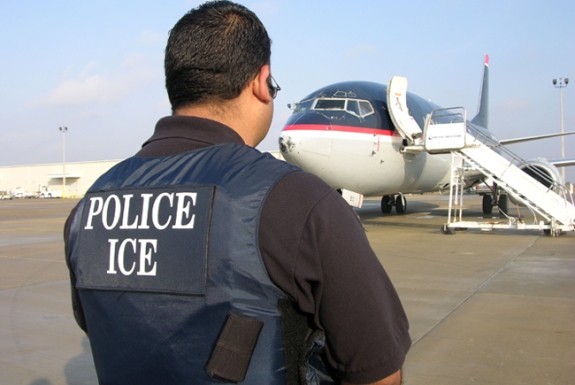This past weekend, the U.S. commemorated the ten-year anniversary of the 9/11 terrorist attacks. Life and travel in the U.S. has changed in some significant ways over the past decade, and many observers have noted that immigration policy, in particular, has been deeply affected. The fact that the terrorists were foreign nationals that arrived legally in the U.S. on visas prompted action, including the creation of the Department of Homeland Security, stepped up enforcement along the border, additional scrutiny for visa applicants, and increased partnerships with state and local law enforcement agencies. But ten years later, is the U.S. actually deporting those who threaten to do us harm?
Immigration enforcement has been prioritized by both the Bush and Obama administrations and, not surprisingly, both administrations claimed to target enforcement efforts on terrorists and criminals. Very recently, the Obama administration has touted its emphasis on “criminal aliens” and increased its efforts to prioritize serious criminals and persons who pose a threat to national security or public safety. These announcements followed strong criticism from immigrant advocates across the country who noted that many immigrants with minor criminal histories or no criminal histories at all were being deported. Rather than focusing on terrorists and other serious threats, the U.S.’s post-9/11 immigration policies have cast an exceedingly wide net.
The Transactional Records Access Clearinghouse (TRAC) has released a fascinating new analysis of deportations both prior to and after 9/11 and found that, despite the rhetoric, enforcement has not focused on terrorists or criminals. Immigration Enforcement Since 9/11: A Reality Check analyzes deportation data from the last 20 years and compares pre-9/11 deportations to post-9/11 deportations. Confirming what advocates had reported, while the overall number of deportations has increased, the actual numbers of deportations of terrorists, national security threats, and criminals have declined. At the same time, the number of people deported for civil immigration violations has increased sharply.
The numbers are shocking. Deportations have increased dramatically from 1.6 million in the decade before 9/11 to 2.3 million in the decade since. In the decade before 9/11, there were 88 deportations on terrorism grounds; in the decade since 9/11, there have been 37. In the decade before 9/11, there were 384 removals on “national security” grounds; in the last ten years there have been 360. Prior to 9/11, 22.8 percent of deportations were immigrants who had criminal violations; since 9/11 only 15.2 percent have had criminal violations.
In contrast, deportations for civil immigration violations have always been disproportionately high and have increased. Prior to 9/11, 75.7% of deportations were on immigration violations only; in the last ten years, the percentage has increased to 83.2 percent. Initially, the Obama administration did see measurable but very modest increases in the proportion of deportees with criminal violations, but TRAC documents show this proportion has decreased again in recent months.
In recent months and weeks, many have questioned whether the administration’s immigration enforcement policies have truly targeted the “worst of the worst.” TRAC’s latest report provides even more evidence that they have not.
FILED UNDER: Department of Homeland Security, enforcement



